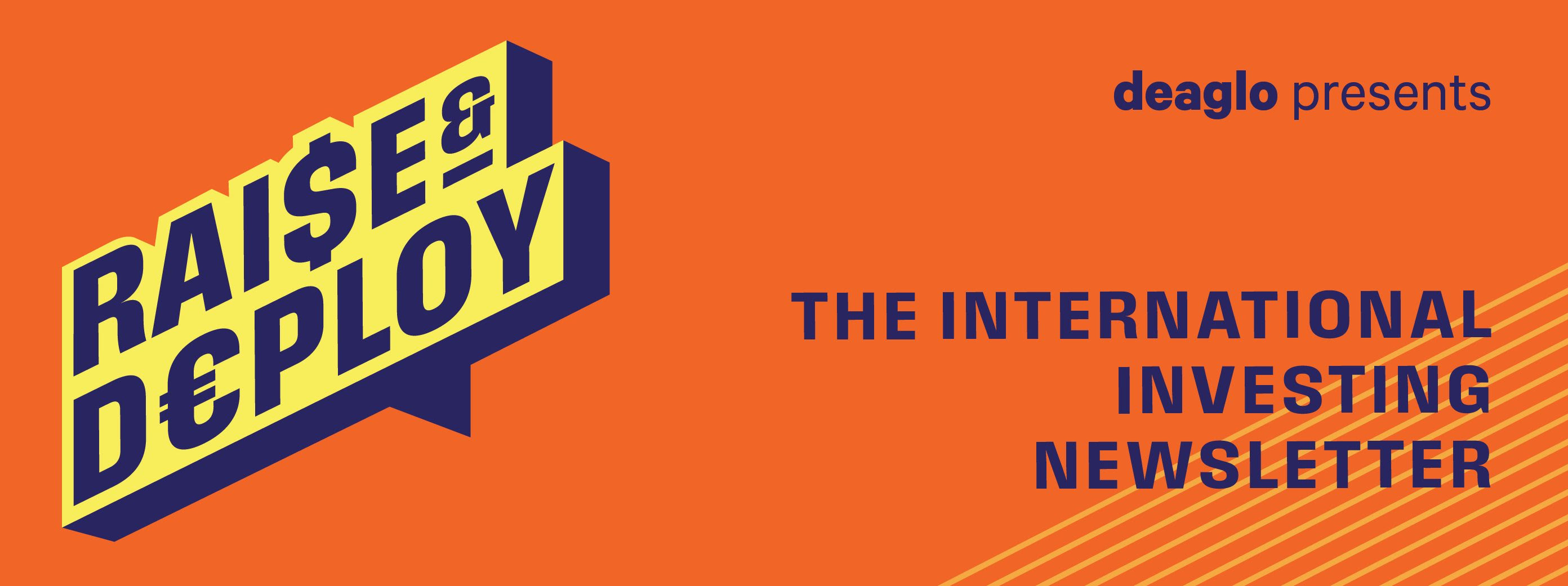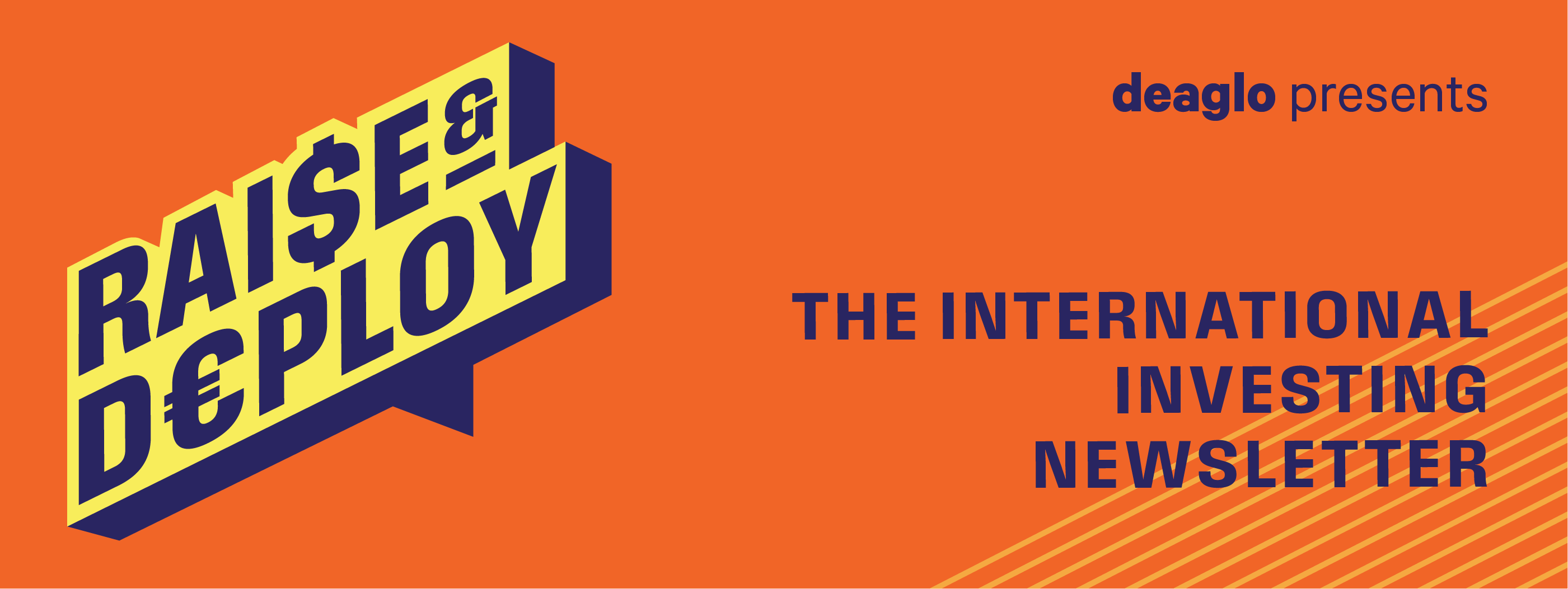May 31, 2023

Hello international investment enthusiasts and welcome to the inaugural Raise & Deploy newsletter.
This month, we’re asking one of the hottest questions in international finance. That is: is the dollar’s status as the global reserve currency on its deathbed? Is the greenback going six feet under? Is it RIP to USD?
In short: no. But also… maaaybe?
We’re looking at why it probably won’t happen, why it still might and what a de-dollarized near future could look like.
But first, to Brazil.
📍Brazil: A new era for ESG FDI?

The election of Lula da Silva at the back end of last year had investors of all stripes sitting up and taking notice – a change of President in the world’s 10th largest economy tends to do that. But it was of particular interest to ESG-minded investors, many of whom found the disregard in which Lula’s predecessor held the environment somewhat of a turnoff.
Others, however, were willing to look past Bolsonaro’s Amazon-shredding behavior and take comfort in his strong economic fundamentals, high-interest rates and pro-market stance. As a result, FDI reached $90.6 billion last year, the highest annual figure in a decade, with green energy investment paradoxically soaring under the presidency of a man some dubbed ‘Captain Chainsaw’.
So, are we witnessing the start of a new era for ESG investment in Brazil?
Read the full blog here.
Charted Territory 📊

Reading the FT this month, this chart caught our eye. Here’s our Head of LatAm, Matheus Zani, to explain exactly what we’re looking at.
“Local currency bonds from emerging markets have become a compelling investment opportunity recently, outperforming hard currency bonds and offering attractive fundamentals and valuations.
The proactive actions of many emerging market central banks, including raising interest rates ahead of the Federal Reserve, have led to improved real yields (adjusted for inflation) on these bonds. Additionally, the recent strengthening of currencies such as the Mexican peso and Brazilian real against the dollar benefits bond investors holding local currency bonds. As always, currency risk should be considered.
Overall, local currency emerging market government debt provides strategic benefits of capital preservation, liquidity, and returns, making it an attractive option for investors seeking diversification and attractive valuations.”
Around the 🌎 in Headlines
Lira tanks as Erdogan re-elected as Turkish President
US interest rates take a hike… again
The yuan drops to multi-month lows against the dollar
Argentinian inflation tops 130%; country releases new banknote to celebrate
Want to get Raise and Deploy directly into your inbox?
RIP to USD? 💸

Back in September, even by its own lofty standards, the US dollar was riding high. Driven by the Fed’s aggressive interest rate hikes, and a scramble for the stability of the world’s premium safe haven currency, times were good.
But eight months is an awfully long time in the global economy. Now, the dollar is down and economies around the world have been publicly throwing up two middle fingers to the currency, fueling talk of ‘de-dollarization’.
De-dollarization chatter tends to rear its head from time to time, but these flirtations have a particularly political and combative edge. Following the US’s freeze on over $330bn of oligarch-owned global reserves and the kicking out of Russia from the SWIFT system in retaliation for the invasion of Ukraine, many global economies outside the West have grown deeply concerned over what they see as a weaponization of the greenback. And while across Europe, condemnation of Putin’s invasion was broadly universal, relations with Russia – and distrust of the US – remain strong elsewhere in the world. What’s more, many governments worry that, if they were to aggravate the US, they too could be frozen out of large parts of the global economy.
In truth, a number of economies have been trying to ease their reliance on the dollar for a while, as the currency’s credibility has begun to wane somewhat, following years of quantitative easing, low interest rates and, more recently – and because what goes up must come down – rocketing inflation. Fears of currency weaponization have only bolstered this.
Find out how those attempts are going and what a de-dollarized near future could actually look like in our blog ‘A de-dollarized world’.
P.S Once you’ve finished reading, make sure to check out the Odd Lots pod on what it would take for the renminbi to become the world's currency. The guys have done a great job unpacking the sequel to all this.

Hungry for more?
Our latest podcast features Howard Kurz, former Managing Director of Lehman Brothers, discussing his career, currency trading, and the Mexican peso crisis.
You can find it on Spotify, Apple Music and RSS.
BONUS: If you’d like to receive our daily round-up of the three must-know global headlines affecting international currencies, sign up for 3things by Deaglo!



